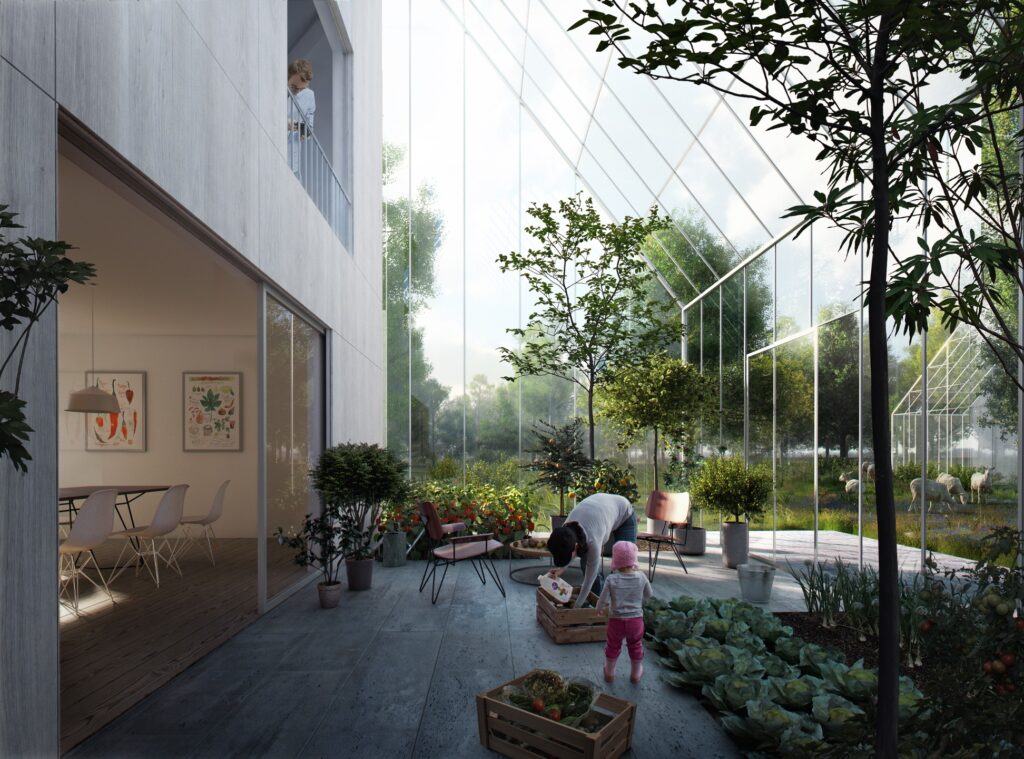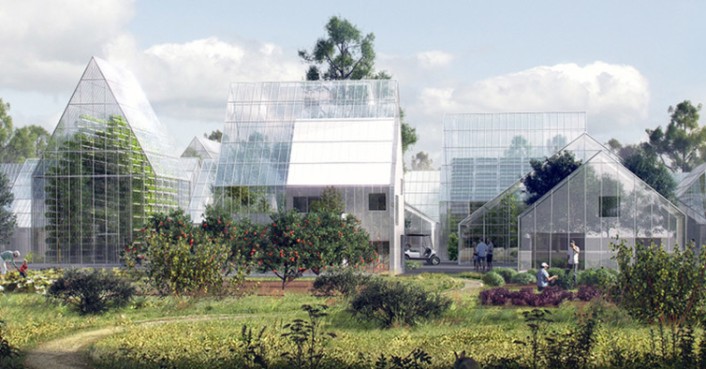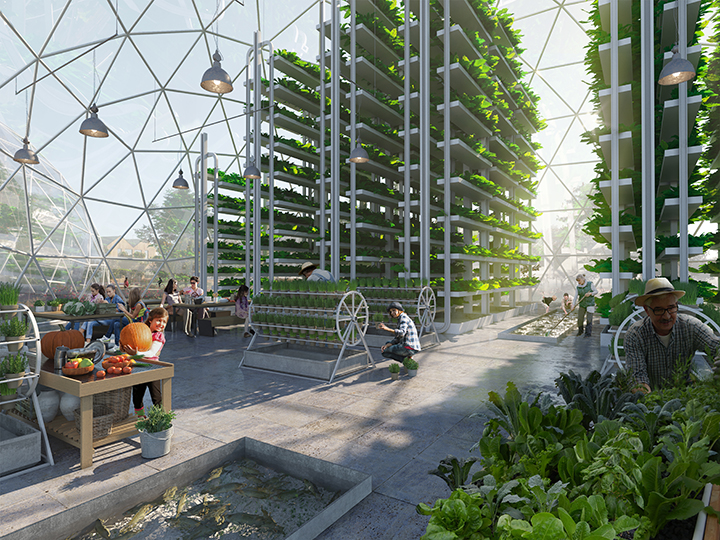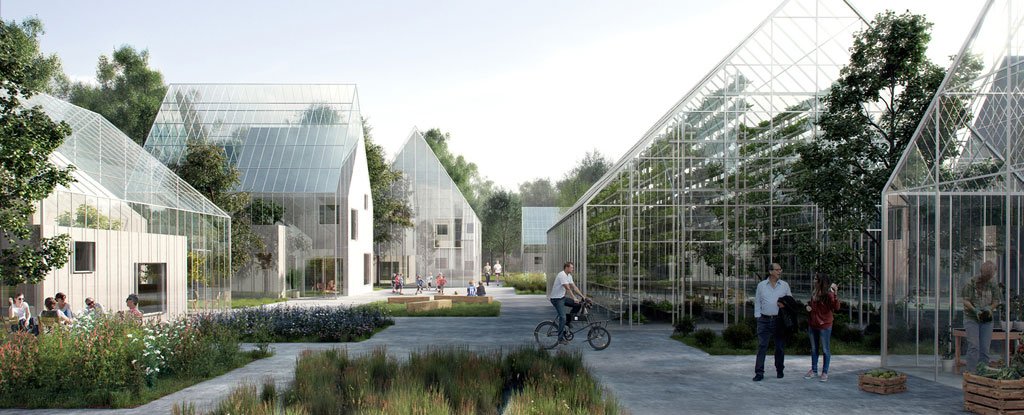The “Smart Village” concept, which is guided by the idea of circular economy, is a response to gigantic consumption needs and the need for greater respect for nature.
“Smart Village” is an initiative that includes a number of integrated activities aimed at improving the living space of residents. The key to the effective achievement of the goals is the implementation of modern technologies with respect for the environment and local traditions. Renewable energy sources, kilometres of optical fibres and optimization of processes in agriculture are framed by a mental change leading to the rational management of our resources.
The idea of the “Smart Village” was implemented by ReGen – a developer start-up. The self-sustaining ecovillage in Almere, the Netherlands, was planned as an investment involving the construction of 203 houses with greenhouses. The local community is to independently produce food, energy, treat rainwater or compost and process waste. The management of utility buildings, including the care of livestock, will be delegated to staff.



However, none of the human settlements at the initial stage of becoming smart has to be as advanced as the one in the Land of Tulips. In Poland, villages known for their smart solutions are Wiązownica-Kolonia and Piaseczna Górka. Both are located in the Świętokrzyskie Province and both have won the “My Smart Village” competition. In their case, the ecological ideas included rain gardens, reverse vending machines, autonomous solar lamps, self-service outdoor library or the so-called swap room that allows residents interested in sharing gently used items to exchange undamaged things.
Miłosz Magrzyk













